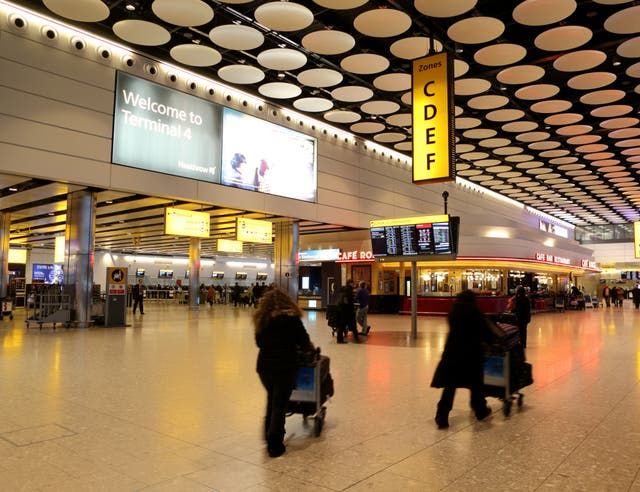
Ban on leaving UK amid new coronavirus laws in force next week
Britons could face a £5,000 fine if they leave the UK without a reasonable excuse under new coronavirus rules coming into force next week.
The legislation for restrictions over the coming months, as the Government sets out its road map for coming out of lockdown, was published on Monday.
The new laws come into force on March 29.
International travel is already banned under most circumstances in the current lockdown, but according to the new laws non-essential foreign travel will be banned until June 30.
The law says no-one may “leave England to travel to a destination outside the United Kingdom, or travel to, or be present at, an embarkation point for the purpose of travelling from there to a destination outside the United Kingdom” without a reasonable excuse.
It suggests anyone who breaks such rules could face a £5,000 fine.
According to the legal document: “The Regulations also impose restrictions on leaving the United Kingdom without a reasonable excuse (regulation 8).”
There is also a £200 fixed penalty notice for failing to fill in a travel declaration form – giving person details and reason for travel – for those planning to leave the UK.
The travel ban does not apply to those going to the common travel area of the Channel Islands Isle of Man and the Republic of Ireland unless that is not the final destination.
 Anyone who breaks the travel rule could face a £5,000 fine
Anyone who breaks the travel rule could face a £5,000 fine
Exemptions also apply including for those needing to travel for work, study, for legal obligations or to vote, if they are moving, selling or renting property, for some childcare reasons or to be present at a birth, to visit a dying relative or close friend, to attend a funeral, for those getting married or to attend the wedding of a close relative, for medical appointments or to escape a risk of harm.
Human rights barrister Adam Wagner, who deciphers the lockdown rules on Twitter for the public, said: “Previously, the ‘holiday ban’ which the government had advertised was assumed rather than explicit – because going on holiday wasn’t a reasonable excuse, it was assumed you couldn’t be outside of your home to do so. But now it is explicit.”
Protests will once again be a permitted exception to rules banning group gatherings under the laws if it is organised by a business, public or political body or other group and as long as organisers take the “required precautions”, which is likely to include measures like ensuring people wear face masks and are socially distanced.
It comes after campaigners, MPs and peers called on ministers to make clear protests were permitted amid the coronavirus pandemic.
Sam Grant, head of policy and campaigns at human rights group Liberty, said: “It is welcome that the next stage of lockdown contains the explicit exemption we’ve been calling for – this should have remained in place throughout the current lockdown, and it is unacceptable for it to wait until next week.”
The rules also allow students to return home during the Easter holiday.
The regulations, which will be voted on by Parliament on Thursday, essentially replace the previous tier system with a series of “steps”, following the proposed dates of the Government’s roadmap out of lockdown for England.
The usual exemptions to the rules apply, like having a reasonable excuse for work, volunteering, childcare and other caring responsibilities.
Step 1, from March 29, permits up to six people meeting outdoors but restricts indoor gatherings of two or more people. Some outdoor sports are permitted.
Step 2, which could come into effect from April 12, is when non-essential shops might reopen as well as businesses like hairdressers and hospitality venues serving customers outside. Weddings and wakes could then have up to 15 people.
Step 3, which the Government said may come into force from May 17, allows groups of six to meet inside and up to 30 people outside.
The need for the restrictions must be reviewed by April 12, and at least once every 35 days thereafter, the legal papers say.
The laws expire on June 30, unless they are scrapped or amended in the meantime.










